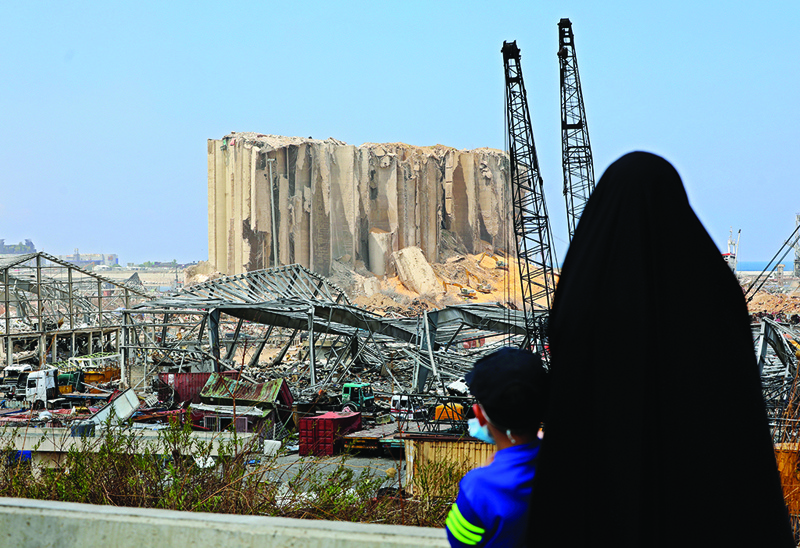
By Ahmad Jabr
Specialists at UK's University of Sheffield Blast and Impact Engineering Research Group described Beirut's blast as "unquestionably one of the biggest non-nuclear explosions in history." The explosion was the equivalent of 1,000 to 1,500 tons of TNT, which is about 10 percent as powerful as the Hiroshima nuclear bomb, they told the Evening Standard.
As soon as footage started to emerge showing the gravity of Beirut's blast, it immediately drew comparisons online and in local media to the nuclear bombs dropped on Hiroshima and Nagasaki towards the end of World War II, not only due to the shape of the mushroom cloud it had created, but also in terms of the large scale of devastation it left.
There is really no comparison between the Beirut blast and the nuclear bombings of Hiroshima and Nagasaki - which, coincidently, marked the 75th anniversaries of the bombings in the same week - in terms of the lives lost or the devastation wrought in Japan that was and remains incalculable. But that doesn't negate or diminish the devastation in Beirut. And there are lessons Lebanon might draw from Japan's response to its earlier tragedy.
For many centuries, Japan was controlled by strong military dictators called 'shoguns' who ruled with an iron fist, and many parts of the nation were marred by civil wars and conflict. Corruption and violence were prevalent in the Japanese society during the 'feudal Japan' era, and people close to the military government had power and influence in a strict class hierarchy. While imperial rule returned to Japan in the late 19th century following a rebellion against the centuries-old military rule, most of the same characteristics of the past remained. Japan's imperial expansion ambitions in World War II ended when two of its cities were devastated by nuclear weapons.
Facing destruction the likes of which humanity has never seen, the founders of modern Japan realized that the only way to overcome a tragedy of such magnitude was to change. And in order to achieve change, they realized they had to start from within and do away with their old system of power that had lasted for hundreds of years and led them to the point where they were at the time.
They adopted a new democracy-based political system, focused all their attention on achieving an economic and industrial revolution, and developed the human capital as the catalyst and main resource to achieve that goal. Within a relatively short period of time, Japan became the strongest economy in the world despite being scarce on natural resources. The society was rebuilt while keeping the good values from the old traditions, creating an efficient system that harnessed the skills of the Japanese people to serve the common good.
Perhaps the most important lesson we can learn from the Japanese experience is that real change and progress happens when there is leadership that truly loves its country, puts its faith in its people and fully believes in their ability to achieve the desired goals.
The Lebanese people who are currently protesting on a daily basis believe that this is the opposite of what they have faced for the majority of their country's existence. In their demands, they believe that the current confessionalist political system needs an overhaul and restructuring in a way that gives them a real chance to develop their country, as they believe in their ability to build a strong and stable society.
The Lebanese people have placed the blame for the country's current situation squarely on the shoulders of dysfunctional governments lacking the basic qualities of leadership, led by those who prioritized personal gain and used sectarianism to fuel their ambitions even at the expense of leaving their cities in ruins.
There is a chance today for Lebanon to use the tragedy as a turning point to realize change and build a modern state led by its people. It is a chance worth taking; whatever the results might end up being, they can't be worse than what's already happened.










